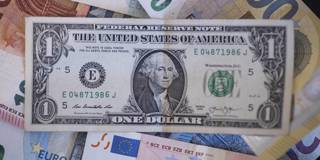OnPoint Subscriber Exclusive
The Big Picture brings together a range of PS commentaries to give readers a comprehensive understanding of topics in the news – and the deeper issues driving the news. The Big Question features concise contributor analysis and predictions on timely topics.

King Dollar
While it is not unusual for the US dollar to appreciate in troubled times, the greenback’s current strength is notable, not least because all other advanced-economy currencies are among those being left in the dust. Given the dollar’s outsize role in the global economy, from foreign-trade invoicing to international-debt issuance, understanding the factors driving its appreciation, and the impact of its strength, is crucial for policymakers and investors alike.
According to Harvard’s Jeffrey Frankel, one factor that explains the dollar’s surge is that the US economy remains comparatively resilient. That resilience, economist Dambisa Moyo notes, reflects a wide range of advantages, from relative energy and food independence to effective governance to an abundance of immigrant labor. As a result, the US is “uniquely positioned to overcome the particular species of inflation” that it currently faces.
The US Federal Reserve is committed to driving that process forward by raising interest rates rapidly. In Frankel’s view, this is the most important driver of the greenback’s appreciation – and it looks set to continue. As Mohamed A. El-Erian, President of Queens’ College at the University of Cambridge, notes, the Fed’s slow start on monetary tightening has left it “continuously scrambling to catch up with realities on the ground.” As a result, the US will now need “more monetary-policy tightening than it would have if the Fed had reacted in a timely and credible fashion.” This will “produce ‘pain,’ in the form of foregone growth (actual and potential) and higher unemployment.”
Ernesto Talvi, a former minister of foreign affairs of Uruguay, doubts that the Fed will go that far, because “the US itself is highly leveraged.” This would be good news for highly indebted developing countries, whose debt-to-GDP ratios are flashing red as the US dollar grows stronger and global growth slows.
But it may be issuers of dollar-denominated debt – rich and poor countries alike – that stand to benefit the most from current trends. As Harvard’s Gautam Nair and former Central Bank of Argentina President Federico Sturzenegger note, they are in for a “windfall,” as “high inflation whittles away a towering stock of sovereign debt.”